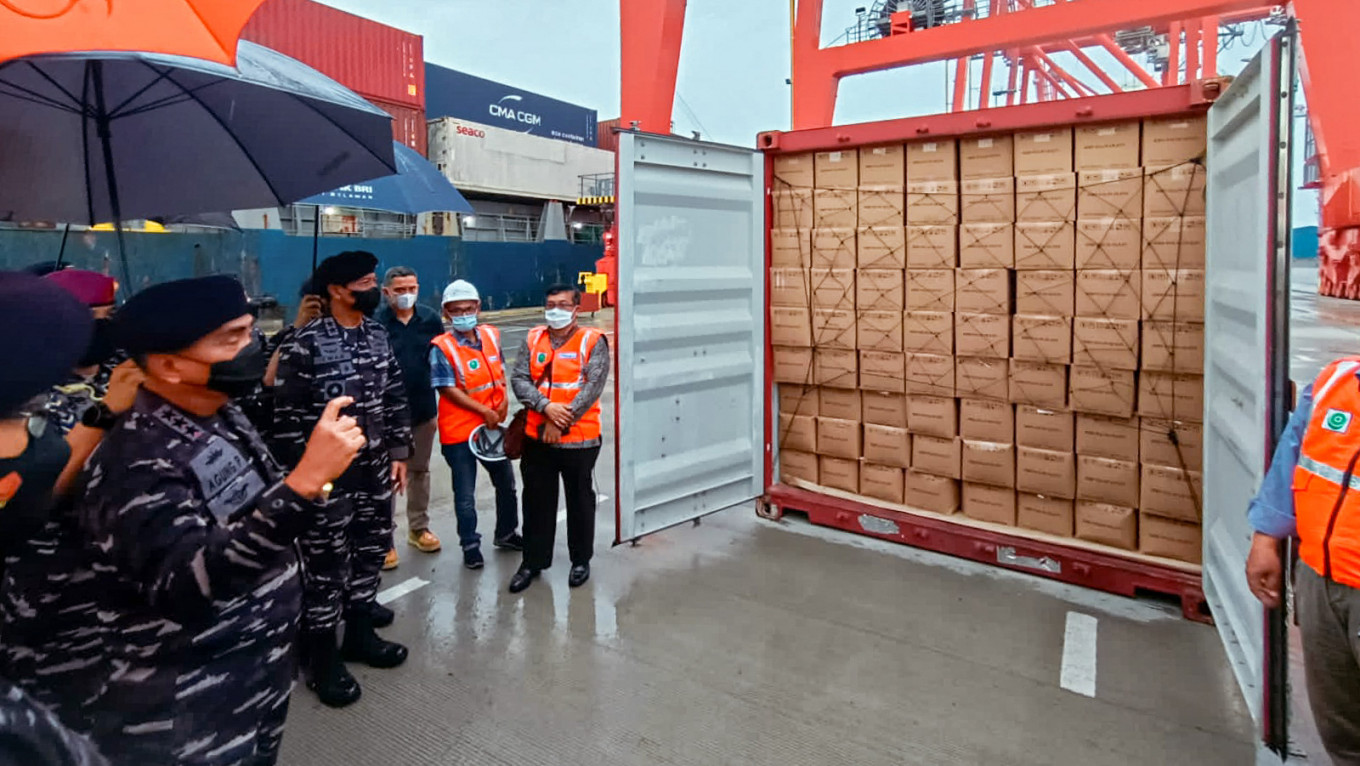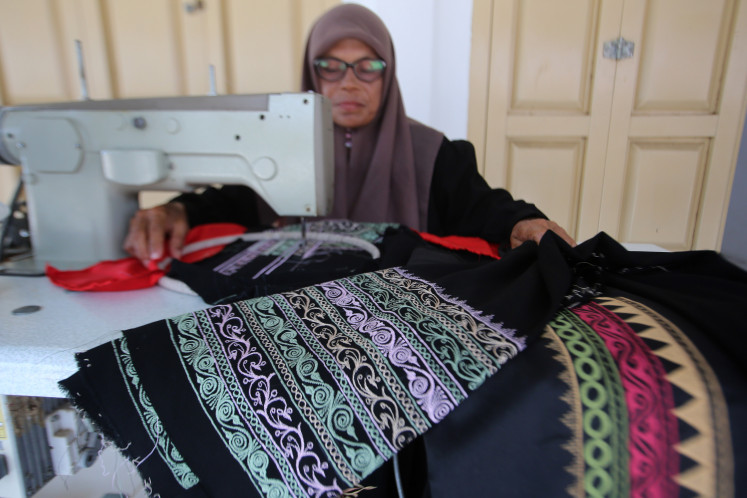Popular Reads
Top Results
Can't find what you're looking for?
View all search resultsPopular Reads
Top Results
Can't find what you're looking for?
View all search resultsPalm oil export ban revoked
The problem is that Indonesia, as the world’s largest producer, only consumes about one-third of its crude palm oil production, which last year totaled over 47 million tons.
Change text size
Gift Premium Articles
to Anyone
T
he government finally decided on Thursday to revoke the total palm oil export ban which was imposed on April 28 apparently because the draconian measure caused more damages to the economy. The government did not admit it but the policy by and large failed to stabilize the price of bulk cooking oil price at the fixed price ceiling of Rp 14,000 (96 US cents) per liter, which is half of the free market price.
The antimarket measure had instead inflicted devastating impacts on the palm oil industry, caused major losses in government revenues and export earnings and cut farmers’ income by 50 to 70 percent and adversely affected millions of workers. The problem is that Indonesia, as the world’s largest producer, only consumes about one-third of its crude palm oil production, which last year totaled over 47 million tons.
Most analysts and palm oil executives had expressed doubt that the export ban would be able to stabilize the cooking oil price unless it is supported by a market intervention mechanism tied to a well-managed subsidy program.
True, standard economic thinking suggests that binding price ceilings will result in allocative inefficiencies due to price distortions and shortages, as producers will not be willing to produce as large a quantity of the cooking oil at that price as consumers will demand. But even such multilateral agencies as the World Bank justifies a market intervention policy when the high price volatility is related to staple food.
Many analysts, oil palm farmers associations and even businesspeople also agree that the government should intervene to stabilize the skyrocketing price of palm oil, which was caused by the global edible oil crisis. They even urged the government to reimpose the domestic market obligation (DMO) on palm oil producers, amounting to 30 percent of their export volume, like the one imposed on coal producers.
The earlier DMO concept launched in February and March is actually appropriate. The missing link is that the policy was not run by a single agency experienced in managing logistics, which needs vast networks of warehouses and distribution. The most qualified institution for this job is the State Logistics Agency (Bulog).
Bulog could be directed to purchase 30 percent of the cooking oil sold by palm oil companies under the DMO scheme at the international price and then sell it to the targeted household and small company consumers at a subsidized price to ensure that the final retail price would not exceed Rp 14,000 per liter. Bulog can finance its operations and stock management with funds from the Oil Palm Plantation Support Fund Management Agency (BPDPKS), which has been collecting billions of dollars from the palm oil export surcharge (windfall tax).
But the verification of the DMO implementation by companies, as a prerequisite to obtaining an export license, should be made through an electronic invoicing platform to ensure a seamless process to prevent excessive red tape that would disrupt export flows while shipment schedules have already been fixed in export contracts.
This single point of domestic sales from producers to Bulog would avoid the need of verifying hundreds of domestic sales invoices as there would only be one invoice to check.











